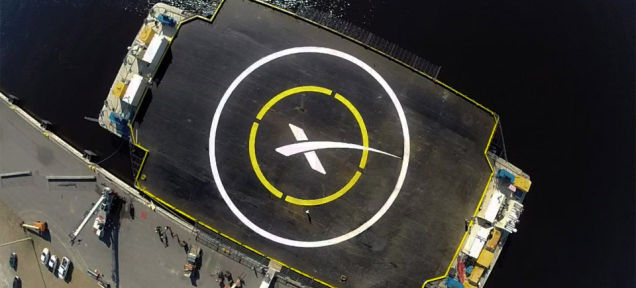Launching a shiny, brand new rocket isn’t exactly easy. Launching a less shiny, used rocket is apparently an even bigger challenge. Today, SpaceX was supposed to send one of its used — sorry, “flight proven” — Falcon 9 rockets skyward to deliver supplies to the crew of the International Space Station, but it has been forced to delay the anticipated event after finding that their hardware wasn’t clean enough to pass inspections.
The company announced the delay last last night, explaining that “particles” were found in the second stage fuel system (which is new, not reused) . So, instead of launching today, the rocket’s next trip into space has been pushed back to Friday.
“Taking additional time for the team to conduct full inspections and cleanings due to detection of particles in 2nd stage fuel system,” SpaceX said in a statement announcing the launch delay. “Now targeting CRS-13 launch from SLC-40 on Dec. 15. Next launch opportunity would be no earlier than late December.”
Sadly, this isn’t the first time the mission has had to be delayed, and SpaceX had originally planned on send the rocket to the ISS on December 8th. At the time, SpaceX said that the delay was required because they needed “additional time for pre-launch ground system checks.” It does not appear that the subsequent delays are related.
Taking additional time for the team to conduct full inspections and cleanings due to detection of particles in 2nd stage fuel system. Now targeting CRS-13 launch from SLC-40 on Dec. 15. Next launch opportunity would be no earlier than late December.
— SpaceX (@SpaceX) December 13, 2017
The ISS crew will be eagerly awaiting the supply ship when it arrives, as it’s bringing several thousands of pounds of food and scientific hardware. The mission is just the latest in what has become a regular partnership between SpaceX and NASA for supply runs between Earth and the space station.
SpaceX hasn’t said whether any of the issues they’ve run into over the past week are actually related to the fact that they’re using a previously-launched rocket for the mission — and they likely wouldn’t admit such a thing anyway — but the company’s business model going forward will be heavily reliant on used hardware. The ultimate goal for SpaceX is to reduce turnaround times between launches by repurposing rocket stages and getting them ready for subsequent flights in a rapid manner.
The reliability of the vehicles and safety of the cargo outweighs all other considerations, which leads to delays when inspections reveal less than perfect results. That’s not to say that these delays wouldn’t have happened with a pristine, new rocket, but it’s something the company will certainly be considering either way.








